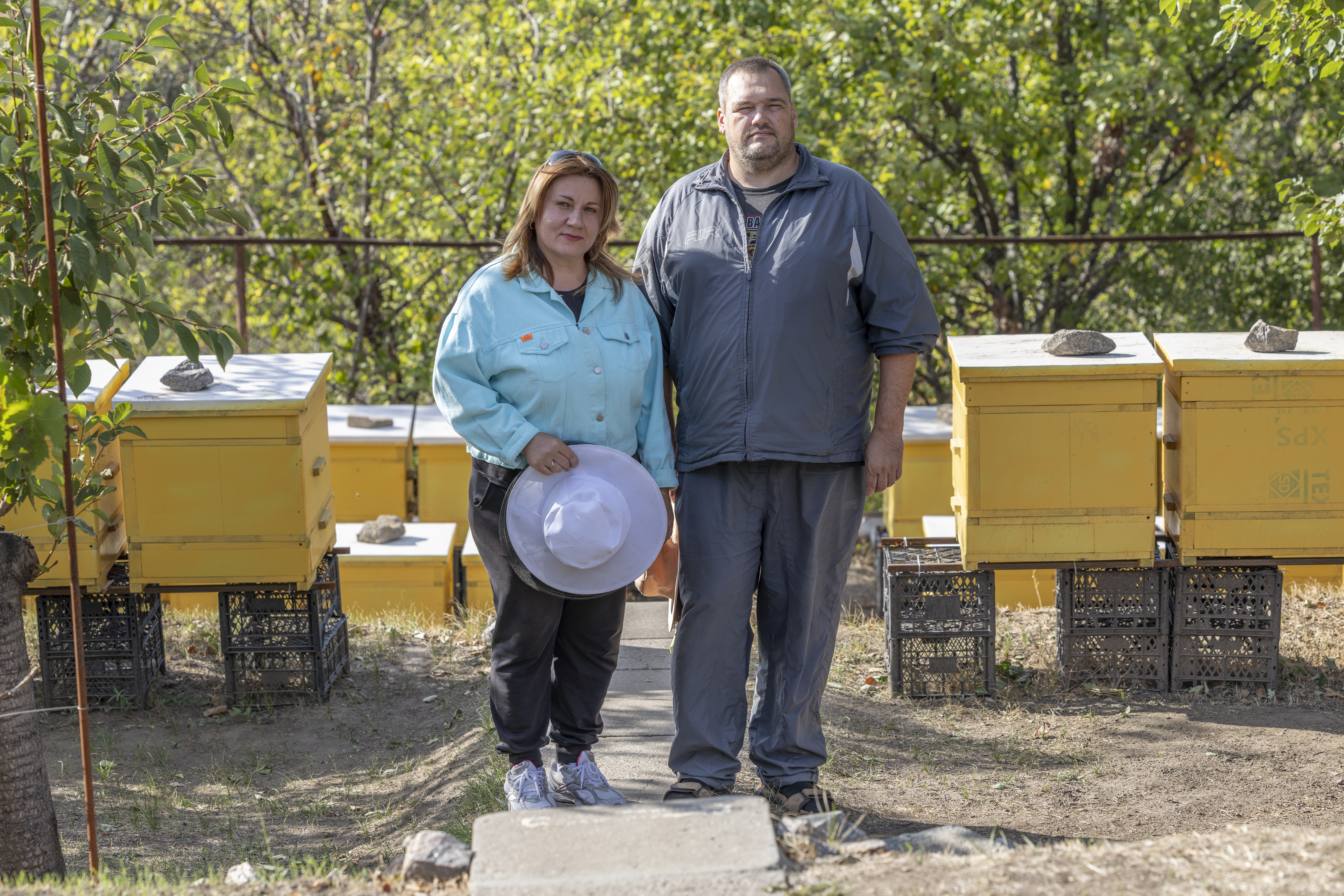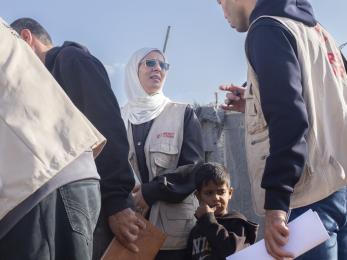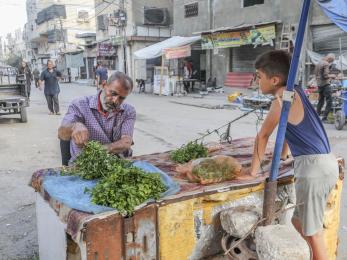After the eruption: averting a secondary crisis in the DRC
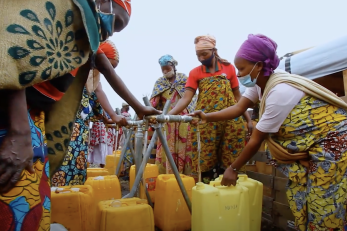
On Saturday May 22, 2021 in the Democratic Republic of Congo (DRC), Justine Asifiwe, 21, was preparing dinner for her children when she heard shouts growing louder outside. Stepping out into the commotion she was stunned to see flames approaching from the distance as lava poured down the sides of Mt. Nyiragongo.
Grabbing her two young children, she joined crowds fleeing towards the Rwandan border. That night, lava coursed through her neighbourhood, leaving a trail of destruction.
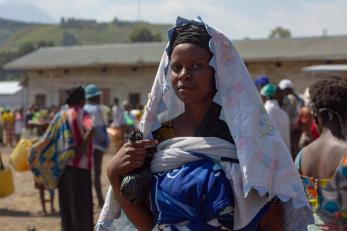
The eruption caused dual lava streams to flow towards the city of Goma, cutting off water for residents. Over 300 earthquakes shook the city in the days that followed.
“More than 550,000 people were immediately cut off from water, amounting to more than a quarter of the city,” said Tom Mosquera, Mercy Corps’ Chief of Party for Water and Sanitation in the DRC.
Although the lava flow stopped short of Goma’s city centre, damage to the Bushara neighbourhood’s water reservoir and pipeline had immediate effects for the rest of the city. The reservoir was one of two constructed by Mercy Corps in March of 2021 in partnership with local authorities and global partners to bring clean water to 1.1 million people.
The water crisis comes at the worst possible time for the DRC, with the country in its third wave of COVID‑19. Water shortages also elevate the risk of waterborne diseases including dihaorrea, which remains the second most common cause of death for children under five in the DRC.
To avert a secondary health crisis, our local emergency team moved quickly to provide temporary drinking water. Each day, tanker trucks provide 235,000 litres of drinking water to more than 31,000 people in the area, offering a helping hand until the permanent water network is restored. This video shows more details about the pilot project and introduces a few of the Congolese people we serve.
Mercy Corps will continue coordinating with global and local partners to bring urgent water supplies to those affected by the eruption, while seeking long-term solutions to repair the damaged infrastructure. Justine sums up why this work is so important. She says, “Water is essential for life. It is absolutely our priority.”
Reporting provided by Mercy Corps DRC team members: Margarite Clarey, Odette Asha, Christian Muhindo, and Joanna Feza.
